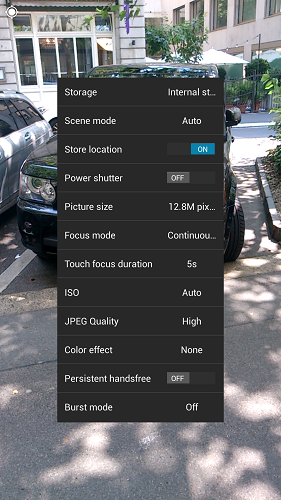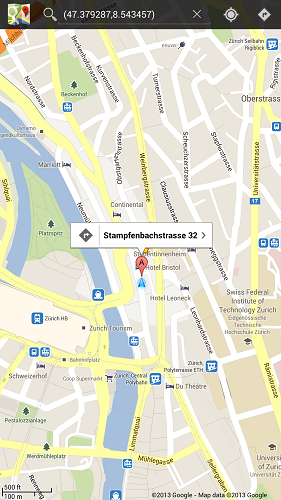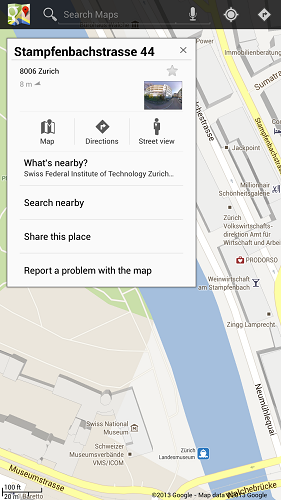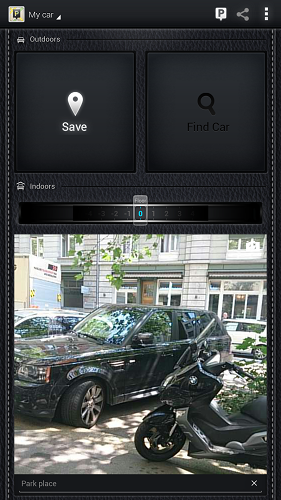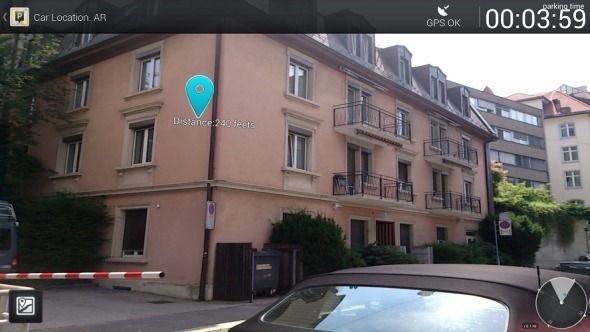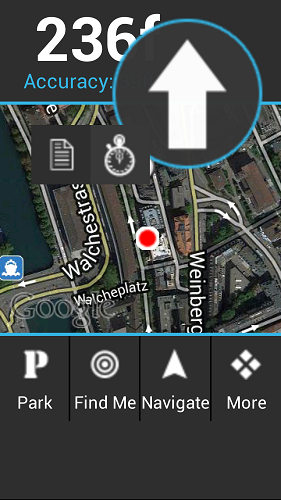Now, where did I leave that car? If you've ever found yourself confounded by this annoying problem, you know what a drag it can be to start hunting around a vast parking lot, laden with bags (or a child!) trying to figure out where the heck that car was. The good news is that with a smartphone, it really doesn't have to be that way. There are quite a few Android apps promising to save your parking spot for you, but when I tested out some of the leading ones, I arrived at a surprising conclusion.
The two purpose-built apps I reviewed are well-rated: One has a 4.3-star average out of over 3,000 reviews (impressive!), while the other has a 4.1-star average with over 400 reviews. And yet, it turns out that sometimes, the tools you already have work better than custom-built apps, especially for tasks that aren't very common.
An App You Already Have: Your Smartphone Camera
Before running to install yet another app on my phone, I like to see if one of the apps I already have can't do the trick by any chance. A good example would be using your camera app as a flashlight (something Vignette can do), and in this case, it turns out that your smartphone already has two apps that can be easily used to save your parking spot and check it later. First comes the camera:
Just whip out your phone, aim it at your car, and take a photo with enough context so that you know where the car's parked. If it's a large parking lot (rather than a street address), there will likely be a number sign next to the car. Just take a photo of that sign, and you're done. If you're parked in an unfamiliar street, you can switch on the camera's Store Location option (shown above), and have the GPS coordinates of the photo automatically saved along wit hit. You can then see exactly where you took that picture:
All of this, without installing a single extra app on your phone -- just using its existing features. Not bad, but it can be made even simpler.
Another Built-in Solution: Google Maps
The other solution is to use Google Maps without taking a photo. Just switch on Google Maps, and hold down your current address:
You would be able to add a star to the map to highlight your current position. Tap the star icon, and you're done -- position saved. This is a simple method but it has some drawbacks: You have to remember to remove the star when you make it back to your car, otherwise your map will become cluttered with stars and you won't know which one is your car. Another drawback is that it works only when you're parked in the open air -- it's not very good if your car is at level -7 of a cavernous mall parking lot.
The Do-It-All: Waze
Waze is a powerful "social GPS" app, which crowd-sources traffic information from its users. The more people use Waze, the better it can track down heavy traffic and automatically adjust your route to avoid traffic jams. We have a detailed review of Waze for iOS, but really, it's just the same on Android. For this post, what you should keep in mind is that Waze also has a feature for indicating where you've parked, assuming you navigated to that location with Waze.
It's not an ideal solution (not as handy as the camera), but it's yet another app you can use to do the same thing, even though it's not a dedicated "save my parking spot" app.
Disappointment 1: Park Me Right
Park Me Right is a promising-looking app which was built from the ground up to save your parking location, whether you're parked indoors or out on the street. It looks quite slick, and uses augmented reality to help you find your car. This is how you save your car's location:
You can save a floor number if you're parked indoors, as well as a photo of your car. Then, when it's time to find your car again, you can switch on Park Me Right's sophisticated augmented view... which may not actually work:
You can't see this from the photo, but the marker is pointing me at a dead-wrong direction. This is not where I parked the car -- in fact, if I follow the marker, I will be going away from where the car is. This may not be the app's fault: It could well be a combination of my phone's sensors and the way the app works with them, but the net result is that in an actual test, the app led me away from where I needed to go. Not so great, and definitely worse than the camera method we started out with. This doesn't mean Park Me Right won't work for you, though -- if you like the way it looks, feel free to take it for a spin.
Disappointment 2: MyCar Locator Free
I decided to test one more purpose-built app for saving your parking spot, MyCar Locator Free. This is a very well-reviewed app, and I had high expectations. Unfortunately, this is what it looked like on my phone's 1080x1920 display:
That's right: Enormous to the point of being unusable. I was able to tweak the layout to something I could use, because my current ROM (PAC ROM for Xperia Z) lets me adjust each app's size individually, but other users may not be so lucky. Even adjusted to a reasonable size, the app's interface feels dated, clunky, and out of place on a modern Android Jelly Bean device.
That said, MyCar Locator does offer a quick and simple way to save your car's location, and it even works if you don't have a GPS signal: Just double-tap on any point in the map, and it will be saved for later.
Some Things Don't Need a Custom App
My takeaway from this post is that you don't always need to install a purpose-specific app. Sometimes, the tools you already have really are the best for the job, even if the camera app is just a camera app and not a "car locator camera."
Do you use smartphone apps only to do what they say on the tin, or do you find yourself repurposing existing apps for novel and interesting uses their creators may not have thought of?


